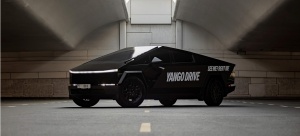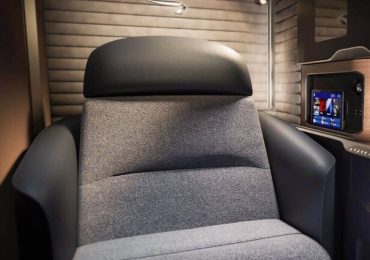
Arabian Travel Market | 30 April | Global Stage | 12:50 – 13:25
Ground transportation took center stage at Arabian Travel Market 2025 during a dynamic panel titled ‘Driving Connectivity: The Transformative Role of Ground Transportation in Travel Strategies.’ Held on the Global Stage, the session brought together key leaders driving innovation in mobility across the travel and tourism ecosystem. Moderated by industry commentator Alexandra Topalian, the discussion featured:
– Ahmed Arab, Head of Business Development for the MEA region at Uber
– Justin Cooke, CEO of the World Sustainable Travel & Hospitality Awards
– Jehan de Thé, Group Public Affairs Director at Europcar Mobility Group
The session explored the evolving role of ground transport in shaping seamless, sustainable, and smart travel experiences—shifting the focus from point-to-point transfers to a critical enabler of global connectivity.
Redefining Connectivity in Modern Travel
The panel opened with the question of what ‘connectivity’ means in today’s travel context. Justin Cooke emphasized that connectivity is no longer just about roads and routes—it’s about seamless, sustainable mobility. “Ground transportation is transforming travel by connecting not just airports and hotels, but communities and culture—efficiently, inclusively, and with minimal environmental impact,” he said.
Jehan de Thé highlighted data connectivity and the growing tension between technological advancement and consumer adoption. While electric vehicles (EVs) offer promise, issues like charging infrastructure and cross-border compatibility still hinder progress. She also cited Montreal’s integrated mobility app, which has already achieved over 20% adoption, as a powerful example of how intuitive, citywide solutions can rapidly shift consumer behavior toward smarter travel.
From a ride-hailing perspective, Ahmed Arab positioned Uber as a multi-modal mobility provider aiming to deliver seamless door-to-door experiences. Uber’s vision integrates various transport modes to meet travelers’ real-time needs.
Adapting to the Expectations of the Modern Traveler
Modern travelers demand flexibility, real-time information, and ease of movement. In response, Justin Cooke noted that the World Sustainable Travel & Hospitality Awards are spotlighting organizations delivering meaningful change in these areas, showcasing scalable solutions that blend technology and sustainability.
AI, Data, and the Power of Innovation
The panel agreed that technology—especially AI and data analytics—is reshaping the ground transport sector. Smart routing, predictive demand modelling, and app integrations are driving efficiency while reducing emissions. As Cooke noted, “Sustainability is no longer a retrofit; it’s a design principle.”
Collaboration Is Key
When asked about collaboration opportunities, the panel discussed the potential of data-sharing agreements, universal standards, and super apps that unify public and private transport services. The goal: a harmonized travel experience across borders and platforms.
Aligning with Smart Cities
While smart city investments continue to grow, panelists acknowledged that alignment between private transport services and public infrastructure is still evolving. The conversation pointed toward growing opportunities to plug into emerging urban mobility ecosystems through adaptive technologies and policy frameworks.
Sustainability: More Than a Buzzword
The conversation on sustainability spotlighted regional innovation. Justin Cooke praised the UAE’s leadership, citing projects like The Loop, a 93km smart highway for pedestrians and cyclists, and The Boring Company’s Dubai Loop, a high-capacity tunnel network. He also highlighted Etihad Rail and Shenzhen’s fleet of 16,000 electric buses—the largest in the world—as global benchmarks for sustainable mobility at scale.
Ahmed Arab emphasized Uber’s tailored solutions across Africa, particularly motorbike services that meet local transportation needs while leveraging technology for increased safety and efficiency.
Emerging Trends in Excellence
From the awards lens, Cooke noted an uptick in recognition for multi-modal platforms—like Uber’s rail booking service in the UK—demonstrating how the integration of private and public systems is gaining global traction.
Regulatory Realities
Regulation was acknowledged as a double-edged sword: a driver of standardization, but also a potential barrier when fragmented. The panel called for progressive, incentive-driven policies to accelerate the transition toward sustainable mobility. Regulation, they noted, should be seen not as an obstacle but as an enabler of quality, safety, and consistency.
The Road Ahead
Looking ahead, the panel was cautiously optimistic. Both Justin Cooke and Ahmed Arab envisioned a seamless, multi-modal future where apps, AI, and clean technology converge. Jehan de Thé, however, offered a more tempered view, suggesting that while integration is inevitable, adoption rates may vary widely across regions due to regulatory, cultural, and infrastructural barriers.
A key takeaway was the growing correlation between technology, sustainability, and customer experience. By harnessing AI and connected data, companies can create systems that not only minimize environmental impact but also enhance traveler satisfaction—matching supply with demand in real time, optimizing fleet usage, and ultimately delivering smarter, more efficient ground mobility.
Conclusion
As the session closed, it became clear that ground transportation is no longer an afterthought in travel strategy—it is a central pillar. The conversation at Arabian Travel Market 2025 underscored that success in this space will hinge on collaboration, innovation, and sustainability, with connectivity redefined as the glue that holds the travel experience together.







